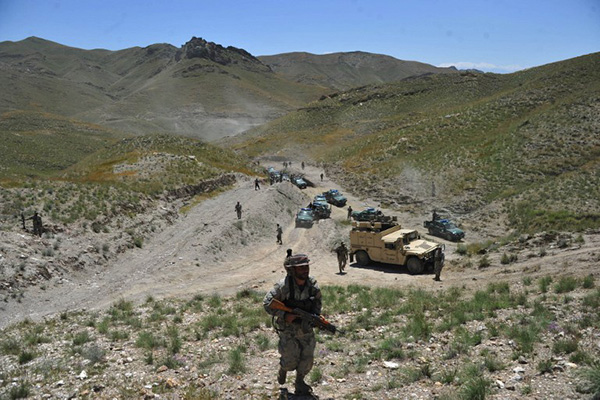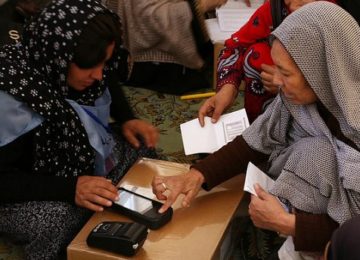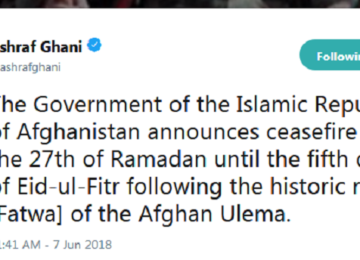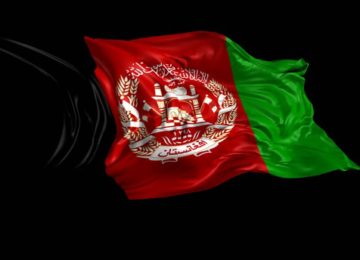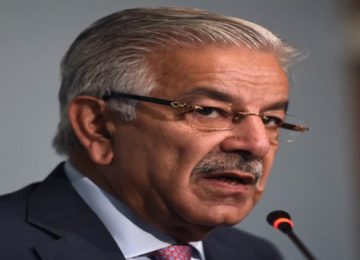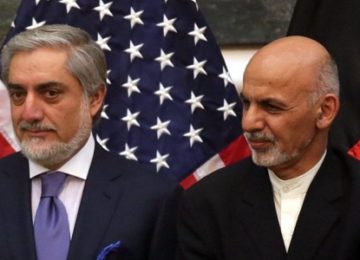Fights with neighbors, terrorism attacks on the group’s few patrons, and concerns over Taliban defections darken Afghanistan’s future.
The Taliban are losing their grip on power in Afghanistan as attacks on diplomats and foreign nationals leave a trail of casualties and as border clashes threaten to spill into war. Investors are leaving the country in fear for their lives, scuppering what little hope there was of reviving the war-ravaged economy. Meanwhile, the United States continues to pour in millions of dollars with no clear idea of where the money goes.
On the country’s eastern border, Taliban gunmen trade fire with Pakistani soldiers, killing or wounding scores of people, including women and children, in recent weeks. Islamabad has effectively withdrawn its ambassador, Ubaid Ur Rehman Nizamani, after he was attacked at the embassy in Kabul on Dec. 2. Some commentators say the two countries are now at war. Two Russians were among six people killed in a suicide attack on their embassy in September. Clashes have erupted on Afghanistan’s border with Iran. Regional countries that were relieved to see the United States and NATO leave last August now worry about the flow of drugs, migrants, and left-behind U.S. weapons out of Afghanistan as the country nears collapse.
But it’s the latest attack that has rattled what appears to be an emerging status quo, as China sniffs the wind for secure investment opportunities in Afghanistan’s promising minerals sector and sets itself up as the dominant partner of a Taliban eager to make some progress toward recognition as the legitimate government. All that fell apart on Dec. 12, when gunmen laid siege to a multistory hotel in downtown Kabul used by Chinese businessmen. China’s foreign ministry said five Chinese were injured; the Italian-based nonprofit Emergency Hospital said it received 18 injured people and three dead. The hourslong assault happened the day after Taliban leaders assured China’s ambassador to Afghanistan, Wang Yu, that Chinese nationals were safe. Wang has since ordered all Chinese to leave the country as soon as possible.
With them go any immediate prospects of economic development. The World Bank said two-thirds of households can’t afford enough to eat as the Taliban have been incapable of attracting investment, creating jobs, or convincing the international community to lift damaging sanctions on the banking and financial sectors.
“China can’t rely on the Taliban now, so it’s over for the foreseeable future,” said a former Afghan diplomat close to Beijing, speaking on condition of anonymity. The arrival of hundreds of enthusiastic Chinese businesspeople on the lookout for money-making opportunities had given some hope that things were about to turn. They had thought they could ride China’s decadeslong relationship with the Taliban and plans flagged by Wang to develop the minerals sector and extend China’s Belt and Road infrastructure network through Afghanistan to speed Chinese products to markets in Eurasia and Europe. Its major state corporations had already earmarked the big Mes Aynak copper deposit near Kabul, with a $3 billion, 30-year agreement signed in 2008. They’ve also been visiting gold, lithium, and uranium mines as well rare earths and other minerals, mining sources said.
China’s aversion to risk has precedent in Afghanistan: Taliban attacks on Chinese workers at Mes Aynak soon after the deal was done saw those workers withdraw, with work yet to resume—though control of a copper deposit said to be one of the biggest in the world is a useful hedge for the world’s biggest consumer of the metal. Yu Minghui, who heads the China-Afghanistan Trade Committee and founded a Chinese residential development outside Kabul, said he doesn’t expect many of his compatriots to return to Afghanistan after the Lunar New Year in late January. He told Reuters that around 500 Chinese businesspeople had arrived since the republic’s 2021 collapse. “I think maybe 80 percent will not return,” he said.
China investment isn’t the only casualty of the hotel attack. The Haqqani network, a Taliban offshoot and al Qaeda affiliate, has a long relationship with China’s ruling Communist Party, and its boss, Taliban Interior Minister Sirajuddin Haqqani, has lucrative trade deals with China. Haqqani has risked going against the wishes of the Taliban’s grassroots supporters by secretly agreeing to Chinese demands for the deportation of Uyghur militants—fellow Muslims who fought alongside the Taliban with the Turkistan Islamic Party, which seeks to overthrow the Chinese state—throughout the war on the U.S.-supported republic. Documents seen by Foreign Policy show he signed off on the return of seven Uyghurs to China in the summer.
“For Haqqani, this was a pragmatic decision for his own survival; he’s always been close to China and needs to maintain that relationship,” said a former Afghan security official. But he’s risking losing support among core Taliban fighters and battlefield commanders, and there are plenty of other jihadi groups they could join, including the local franchise of the Islamic State, called Islamic State-Khorasan, he said.
Uyghurs were “the men who cleaned our weapons. They were our vehicle mechanics. They did everything we could not do ourselves. They won us the war,” the official quoted Taliban commanders as telling him. There’s little doubt Uyghurs face execution on return to China. A million Uyghurs are said to be incarcerated in concentration camps as the ruling Chinese Communist Party seeks to extinguish nationalistic sentiment and ethnic and religious identity in what the United States calls a genocide.
Questions are now swirling about future targets among the countries and organizations with embassies in Kabul and which Taliban faction or jihad group would benefit. The United Nations is consolidating its presence in Kabul, sources in the capital said, scaling down multiple locations to one fortified compound. The Islamic State-Khorasan generally claims responsibility for major attacks and could boost recruitment by undermining the Taliban’s Islamist credentials—for instance, by targeting the anti-Muslim Chinese regime. A variety of sources from the U.S. government, the former Afghan regime, and others close to the Taliban say, however, that the Islamic State-Khorasan’s capacity was exaggerated by the Taliban to gain U.S. financial and intelligence support under the guise of counterterrorism cooperation. Although its presence in Afghanistan does pose a threat to the Taliban, it’s also seen as a useful cover, as the attacks it claims as its own often bear the hallmarks of Haqqani network attacks during the war.
The security official said an exodus of Taliban supporters to the Islamic State-Khorasan has already begun and could explain the similarities in attack methodology. “Jihadists are like drug addicts; they just want to wage jihad, and a lot of Taliban supporters are diverting to [the Islamic State-Khorasan] to wage jihad against the Chinese as they’re the Taliban’s new friends now the Americans have gone,” he said, referring to disillusion among many supporters about the Trump administration’s 2020 Taliban deal, which led to the U.S.-NATO withdrawal. “There will be a jihadist rebellion within the Taliban as the number of defections grows.”
Since their victory, the Taliban have invited dozens of terrorist and jihadi groups into Afghanistan, including al Qaeda and the Pakistani Taliban, Tehrik-i-Taliban Pakistan (TTP), which is now attacking Pakistan from Afghanistan. Last week, U.N. Secretary-General António Guterres reiterated concerns about terrorism and border security as well as other Taliban excesses like banning girls from school and the lack of rule of law and justice in his quarterly report. On Tuesday, the Taliban, which had previously banned girls from secondary education, barred women from universities as well, furthering the fundamentalist agenda they had promised not to implement.
Yet while the Taliban alienate their backers, the United States delivers tens of millions of dollars in cash every month for distribution via the United Nations, ostensibly for humanitarian relief, though much of it reportedly ends up in Taliban hands, further entrenching their sense of impunity. American officials regularly meet with Taliban figures in third countries. But that doesn’t seem to be a prelude to any sort of official diplomatic presence, which means the Taliban will—more than a year after their return to power—continue as isolated, friendless, and unrecognized as they are now.
As the threat to embassies and foreigners escalates and the Taliban press ahead with public executions and floggings, the optics of an official presence “just won’t work right now,” the former diplomat said. “No one is going to take that risk now or for some time. No one is safe.”
By Lynne O’Donnell
—
Origially published in Foreign Policy – December 20, 2022
Lynne O’Donnell is a columnist at Foreign Policy and an Australian journalist and author. She was the Afghanistan bureau chief for Agence France-Presse and the Associated Press between 2009 and 2017.



